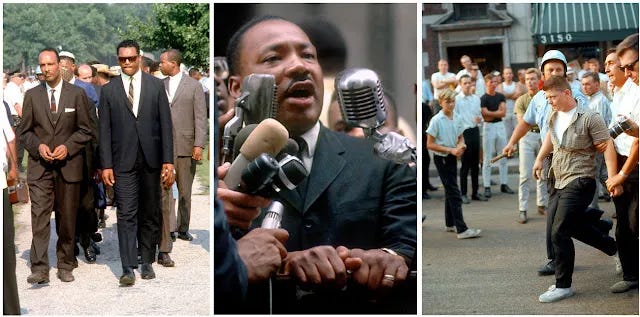CSY Replay #16: More On Segregation
A reflection from 2017 is brought back for today's Dr. Martin Luther King, Jr. remembrance.
Scenes from the Marquette Park Open Housing March in Chicago in 1966. Martin Luther King, Jr. and fellow marchers were pelted with rocks from a surrounding mob, in what they called a defense of their community. Source: npr.org
(Note: As a new/old president takes office with plans to roll back diversity, equity and inclusion (DEI) programs in the federal …
Keep reading with a 7-day free trial
Subscribe to The Corner Side Yard to keep reading this post and get 7 days of free access to the full post archives.



